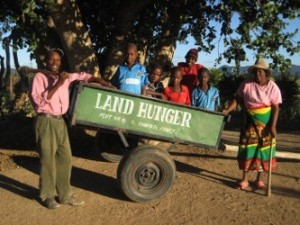 New research from Zimbabwe will be shared at a double panel session at the UK African Studies Association conference this week.
New research from Zimbabwe will be shared at a double panel session at the UK African Studies Association conference this week.
This year's event is at the University of Sussex, and our session is on Wednesday 10 September from 11 to 12.30. The session has been organised by Gareth James of Edinburgh University, and I am chairing (for full panel & paper details, see below).
Zimbabwe's land reform that unfolded from 2000 has been intensely controversial, and remain so. But 14 years on there is a wider array of research to draw from in order to make more balanced and informed conclusions on outcomes and implications.
The work by me and colleagues, published in the book Zimbabwe's Land Reform: Myths and Realities, showed how some farmers who gained land through the land reform in Masvingo did remarkably well – accumulating, investing and improving production. Others have pointed to the 'tobacco boom' that has brought significant riches to those in the Highveld tobacco areas. Such successes have not universally been the case however. Land in some areas remains poorly utilised, some larger scale farmers have failed to invest, and political elites have captured land but not put it into production.
The panel, 'New narratives and emerging issues in the Zimbabwe land debate', will provide an opportunity to reflect on new research conducted by Zimbabwean and European researchers in the last few years in different parts of the country.
This post was written by Ian Scoones and originally appeared on Zimbabweland
Zimbabwe's land reform that unfolded from 2000 has been intensely controversial, and remain so. But 14 years on there is a wider array of research to draw from in order to make more balanced and informed conclusions on outcomes and implications.
The work by me and colleagues, published in the book Zimbabwe's Land Reform: Myths and Realities, showed how some farmers who gained land through the land reform in Masvingo did remarkably well – accumulating, investing and improving production. Others have pointed to the 'tobacco boom' that has brought significant riches to those in the Highveld tobacco areas. Such successes have not universally been the case however. Land in some areas remains poorly utilised, some larger scale farmers have failed to invest, and political elites have captured land but not put it into production.
The panel, 'New narratives and emerging issues in the Zimbabwe land debate', will provide an opportunity to reflect on new research conducted by Zimbabwean and European researchers in the last few years in different parts of the country.
This post was written by Ian Scoones and originally appeared on Zimbabweland
